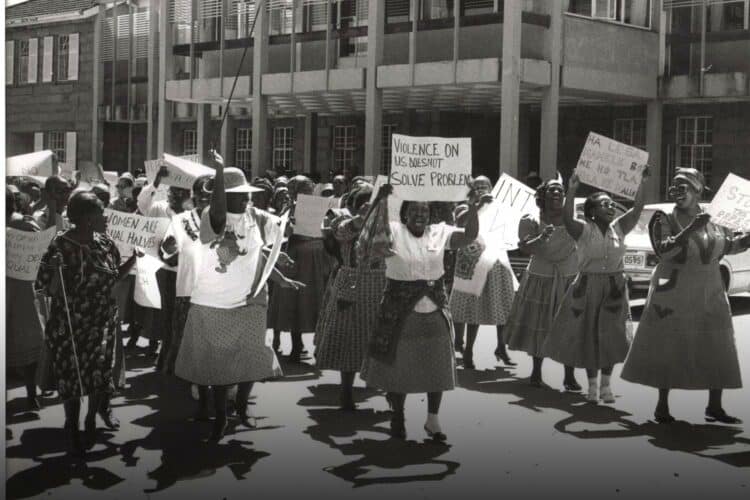The celebration of Women’s Day in South Africa holds a profound historical significance, tracing its roots back to a pivotal moment in the country’s struggle for freedom, equality, and human rights.
What is the history of Women’s Day in South Africa?
The ninth day of August, now recognised as National Women’s Day, commemorates the courageous and inspiring actions of South African women who took a stand against oppression and discrimination during the apartheid era.
On Thursday, 9 August 1956, thousands of women from all walks of life converged upon the Union Buildings in Pretoria to protest the discriminatory pass laws imposed by the apartheid government.
These laws required black South Africans to carry identity documents, commonly referred to as “passes,” which restricted their movement and daily activities.
Led by women leaders such as Lilian Ngoyi, Helen Joseph, Rahima Moosa, and Sophia Williams-De Bruyn, the march became an iconic demonstration of unity and resistance.
The women, dressed in vibrant colours and singing protest songs, delivered a petition to then-Prime Minister JG Strijdom, demanding an end to pass laws and the removal of unjust restrictions placed on black women.
The significance of this march was not only in its scale but in its message of defiance against a repressive regime. The courage and determination displayed by these women showcased their unwavering commitment to equality, justice, and the dismantling of apartheid.
Significance in South African Society
National Women’s Day in South Africa stands as a symbol of the strength and resilience of women who have played a crucial role in shaping the nation’s history and identity.
It highlights the integral role that women have played in the struggle for liberation and emphasises the ongoing pursuit of gender equality and women’s empowerment.
In the post-apartheid era, Women’s Day serves as a reminder of the progress made and the challenges that persist. It is a day to honour the achievements of women across various fields, including politics, education, healthcare, arts, and business.
It also provides an opportunity to reflect on the issues that still need attention, such as gender-based violence, access to education and healthcare, and economic empowerment.
Five Ways To Celebrate Women’s Day in South Africa in 2023
1. Attend Local Commemorative Events
Participate in events organised by communities, NGOs, and government institutions that commemorate Women’s Day.
Attend rallies, conferences, and workshops that address women’s rights, gender equality, and empowerment, continuing the legacy of unity and activism.
2. Support Women-Owned Businesses
Contribute to the growth of the local economy by supporting women-owned businesses.
Whether it’s purchasing products, services, or crafts from women entrepreneurs, your support helps foster economic independence and equality.
3. Engage in Educational Initiatives
Deepen your understanding of women’s history and contributions by engaging in educational activities.
Read literature by South African women authors, explore exhibitions, and participate in discussions that shed light on the achievements and challenges faced by women in the country.
4. Volunteer for Women-Centric Causes
Channel your efforts into volunteer work that benefits women in need.
Support organisations that provide shelter, resources, and education to women facing challenges. By giving your time, you contribute to a stronger support network for vulnerable women.
5. Raise Awareness on Social Media
Utilise social media platforms to raise awareness about Women’s Day and gender equality issues in South Africa.
Share stories of inspirational women, highlight ongoing struggles and use relevant hashtags to spark conversations and amplify the voices of women.
This Women’s Day, South Africans have an opportunity to honour their history, celebrate the present achievements of women, and work collectively towards a future where gender equality and empowerment are fully realised.






